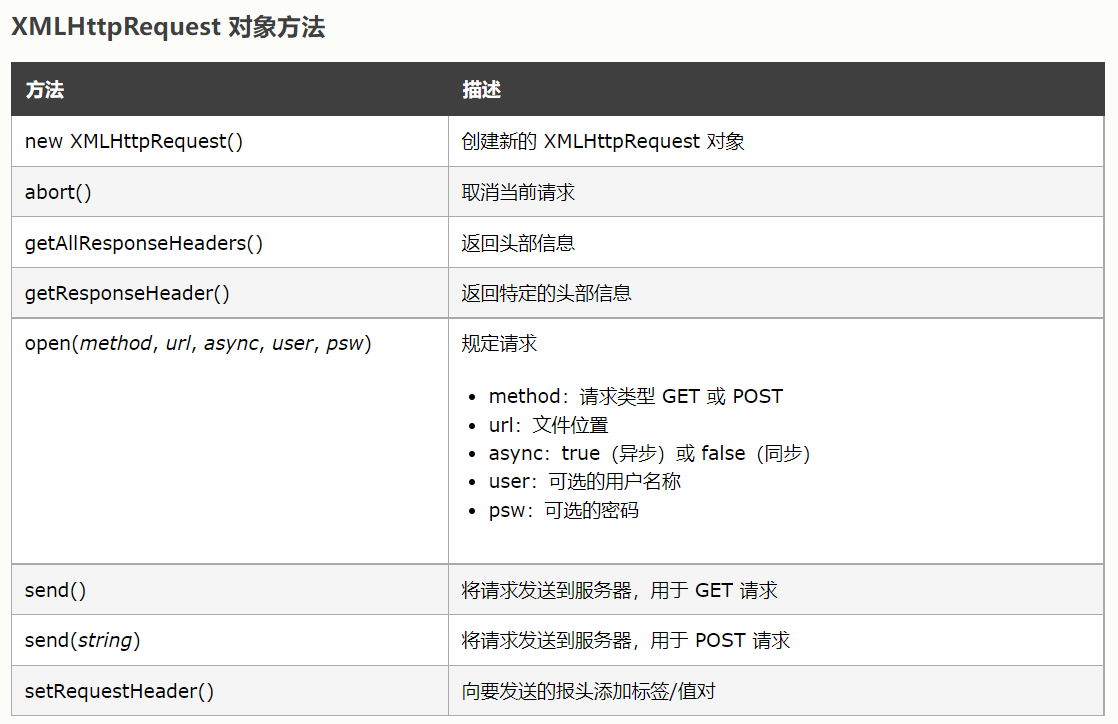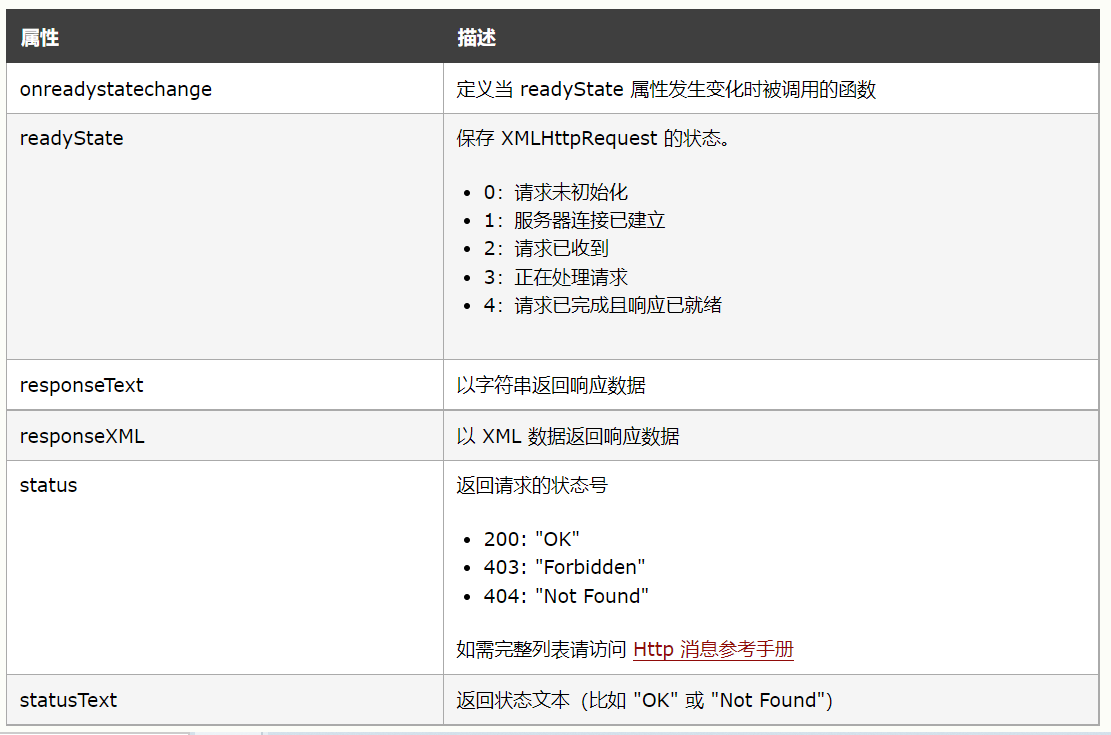# 原生 js 请求
https://www.w3school.com.cn/js/js_ajax_intro.asp
# XMLHttpRequest
Ajax 的核心是 XMLHttpRequest 对象
# 对象方法
new XMLHttpRequest()创建新的XMLHttpRequest对象abort()取消当前请求getAllResponseHeaders()返回头部信息getResponseHeader()返回特定的头部信息open(method, url, async, user, psw)send()将请求发送到服务器,用于 GET 请求send(string)将请求发送到服务器,用于 POST 请求setRequestHeader()向要发送的报头添加标签/值对

# 对象属性
onreadystatechange定义当 readyState 属性发生变化时被调用的函数readyState保存 XMLHttpRequest 的状态。responseText以字符串返回响应数据responseXML以 XML 数据返回响应数据status返回请求的状态号statusText返回状态文本(比如 "OK" 或 "Not Found")

# get 请求
//步骤一:创建异步对象
var ajax = new XMLHttpRequest();
//步骤二:设置请求的url, 异步请求
ajax.open("get", "xxx/xx?starName=美女", true);
//步骤三:发送请求
ajax.send();
//步骤四:注册事件 onreadystatechange 状态改变就会调用
ajax.onreadystatechange = function () {
if (ajax.readyState == 4 && ajax.status == 200) {
// 输入相应的内容
console.log(ajax.responseText);
}
};
# post 请求
var xhr = new XMLHttpRequest();
// 设置请求头
xhr.setRequestHeader("Content-type", "application/x-www-form-urlencoded");
xhr.open("post", "xxx/xx", true);
//发送请求
xhr.send("name=fox&age=18");
xhr.onreadystatechange = function () {
if (xhr.readyState == 4 && xhr.status == 200) {
console.log(xhr.responseText);
}
};
# Fetch
https://developer.mozilla.org/en-US/docs/Web/API/Fetch_API
https://developer.mozilla.org/zh-CN/docs/Web/API/Fetch_API
基本使用:
fetch("http://example.com/movies.json")
.then((response) => response.json())
.then((data) => console.log(data));
# post 请求
fetch("https://example.com/profile", {
method: "POST",
body: JSON.stringify({ username: "example" }),
headers: { "Content-Type": "application/json" },
})
.then((res) => res.json())
.then((data) => console.log("Success:", data))
.catch((error) => console.error("Error:", error));
# 上传文件
const formData = new FormData();
const fileField = document.querySelector('input[type="file"]');
formData.append("username", "abc123");
formData.append("avatar", fileField.files[0]);
fetch("https://example.com/profile/avatar", {
method: "PUT",
body: formData,
})
.then((res) => res.json())
.then((result) => console.log("Success:", result))
.catch((error) => console.error("Error:", error));